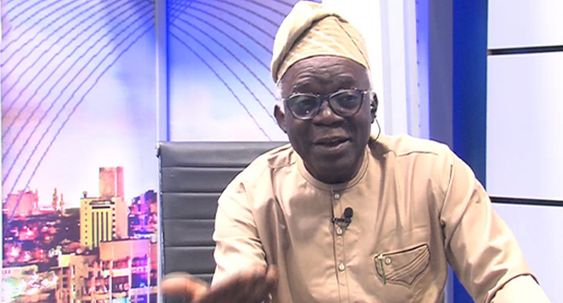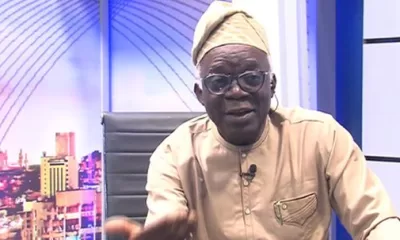Headlines
VIDEO: Falana Insists on Thorough Investigation into Petrol Importation Scam

In a compelling video, Falana demands an immediate and thorough investigation into the petrol importation scam, emphasizing the need for transparency and accountability.
Investigation is needed into the “importation scam” concerning petrol, according to Femi Falana, a lawyer specializing in human rights.
On the Sunday Politics programme by Channels Television, he emphasized that urgent action should be taken to investigate the importation scam.
“I refer to the ongoing mockery at the National Assembly. It is crucial that both media and civil society organizations aid in uncovering this deception.”
Petrol scarcity in Nigeria has been exacerbated by reports stating that the Nigerian National Petroleum Company Limited (NNPCL) owes petrol suppliers a debt of $6 billion.
On Sunday, the NNPCL acknowledged that the company’s indebtedness to petrol suppliers is a major concern as it undermines fuel supply sustainability.
Falana stated that when the government starts addressing affordability and sustainability as a response to long lines at gas stations, it signifies issues.
READ ALSO: Falana Insists Rivers Lawmakers Who Defected to APC Have Forfeited Their Seats
“There has been no complete disclosure by the government regarding petrol subsidy,” declared the Senior Advocate of Nigeria.
Despite the frequent postponements of refinery production resumptions, he stated that Nigeria cannot afford to invest $2.9 billion in repairing them.
If there is another postponement, those responsible for fixing state-owned refineries would be sued by Falana.
The Independent Petroleum Marketers Association of Nigeria (IPMAN) has reported that the current cost per litre for petrol imports is hindering their ability to import the necessary resource much like NNPCL does.
Zarama Mustapha, the IPMAN National Operations Controller stated that at present, PMS incurs a landing cost exceeding ₦1,200 without factoring in marketer margins or transportation and other logistics expenses.
As of now, NNPC sells to marketers at roughly ₦565 which implies a subsidy ranging from almost ₦600 to ₦700.
It is evident from the situation that there is an under-recovery, regardless of whether government officials acknowledge or deny the existence of subsidies.


